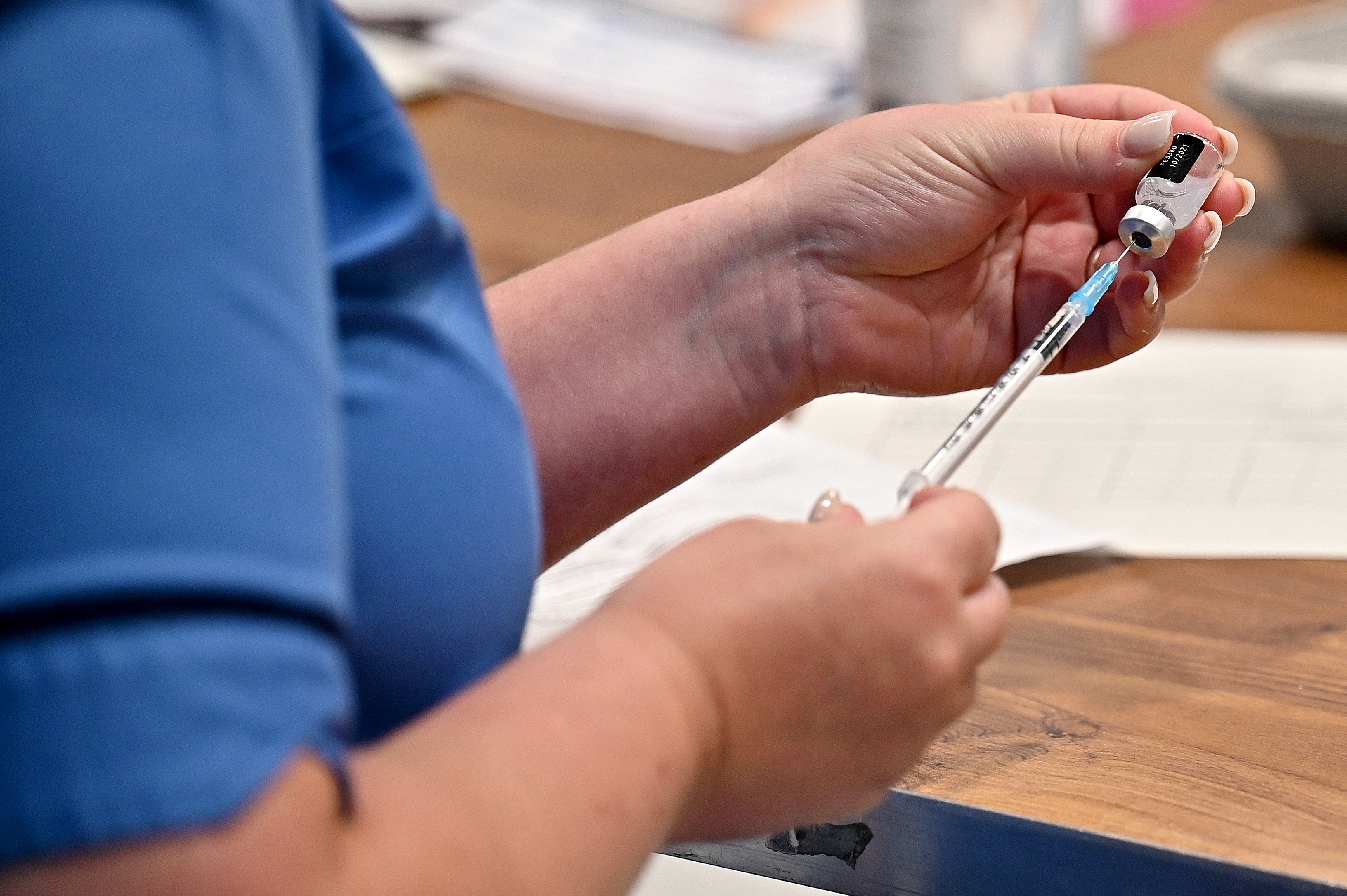Decision on who should get third dose of a Covid-19 vaccine ‘imminent’
Joint Committee on Vaccination and Immunisation due to meet on Thursday

Your support helps us to tell the story
From reproductive rights to climate change to Big Tech, The Independent is on the ground when the story is developing. Whether it's investigating the financials of Elon Musk's pro-Trump PAC or producing our latest documentary, 'The A Word', which shines a light on the American women fighting for reproductive rights, we know how important it is to parse out the facts from the messaging.
At such a critical moment in US history, we need reporters on the ground. Your donation allows us to keep sending journalists to speak to both sides of the story.
The Independent is trusted by Americans across the entire political spectrum. And unlike many other quality news outlets, we choose not to lock Americans out of our reporting and analysis with paywalls. We believe quality journalism should be available to everyone, paid for by those who can afford it.
Your support makes all the difference.A member of the Joint Committee on Vaccination and Immunisation (JCVI), Professor Adam Finn, has said that a decision on who should receive a third dose of the Covid-19 vaccination is “imminent”.
The JCVI is due to meet on Thursday to discuss the potential of a booster campaign and decide who might “really need” a third Covid vaccine dose.
Speaking on BBC Radio 4’s Today programme, Prof Finn explained that some people will need a third dose but suggested that “more evidence” was needed before making a decision on a “much broader booster programme.”
He said: “I think there’s enough evidence, and I think we’ll be imminently deciding, that there will be some people who will need a third dose, particularly people who we know are very unlikely to be well protected by those first two doses.
“But I think we do need more evidence before we can make a firm decision on a much broader booster programme.”
However, Prof Finn was keen to state that it remains unclear whether or not a booster jab for all people over a certain age would make much difference.
Earlier on Thursday morning, he told BBC Breakfast: “I think at this point we need to focus on individuals who are more likely, if you like, to get sick again if they’ve not got a booster.
“And in fact we’ll be having a JCVI meeting this morning to discuss exactly that.
“So, trying to identify the people who are really at risk and really need that third dose.”
He went on to add: “I think it’s less clear really whether a third dose in a more general way, for sort of all people above a certain age, is really going to make very much difference.
“But at this point I think the main message is that the direct protective effects of these vaccines is excellent i.e. if you get the vaccination you’re in a much better place in terms of getting sick.
“But the ability of the programme to actually stop the virus from circulating around in the population is less good than we’d hoped.”
The UK government has said that it will wait for advice from JCVI before beginning any booster dose campaign. However, health secretary Sajid Javid has previously said that he anticipates a booster programme beginning in September.
Experts have questioned whether or not boosters are in fact needed, and the suggestion of booster campaigns in Western countries has been criticised by the World Health Organisation (WHO) when millions of people around the world remain unvaccinated.
The WHO have said that vaccinating those who have already had two jabs when so many people are yet to have one is immoral.
“We’re planning to hand out extra life jackets to people who already have life jackets, while we’re leaving other people to drown without a single life jacket,” said Dr Mike Ryan, director of the WHO’s health emergency programme.
Meanwhile, Professor Peter Openshaw, a member of the New and Emerging Respiratory Virus Threats Advisory Group (Nervtag) which advises the UK government, said that more evidence on the benefits of booster jabs is needed.
“In terms of boosters, we need more evidence really about what benefits those boosters will bring, because we can’t just look at the antibody levels and think that that equates to levels of protection,” he told Times radio.
“It still seems that you get a lot of protection from these vaccines, even if the antibody levels have drifted down to some sort of stable level.”
Elsewhere, US president Joe Biden announced on Wednesday that the US will start giving third doses to its citizens in late September.
Join our commenting forum
Join thought-provoking conversations, follow other Independent readers and see their replies
Comments